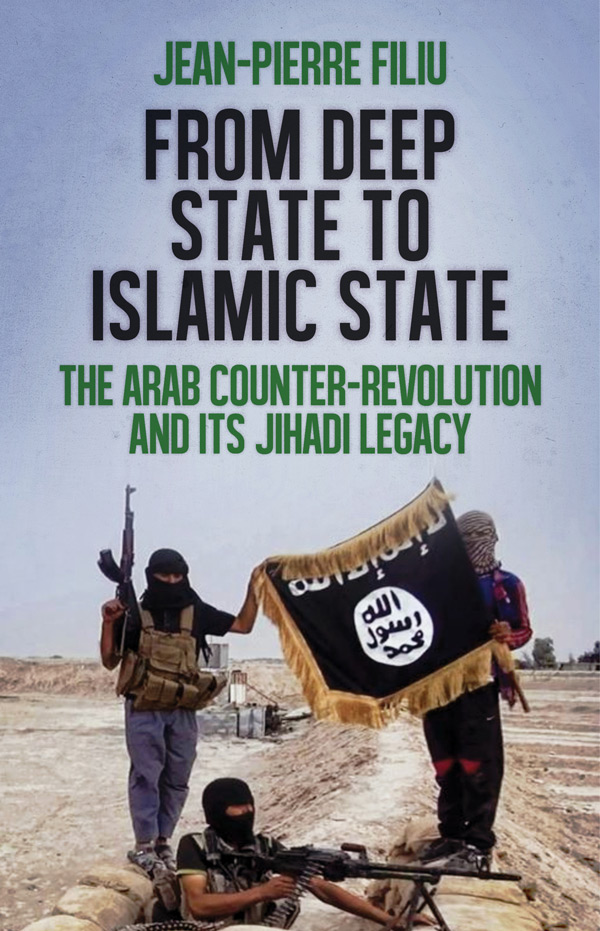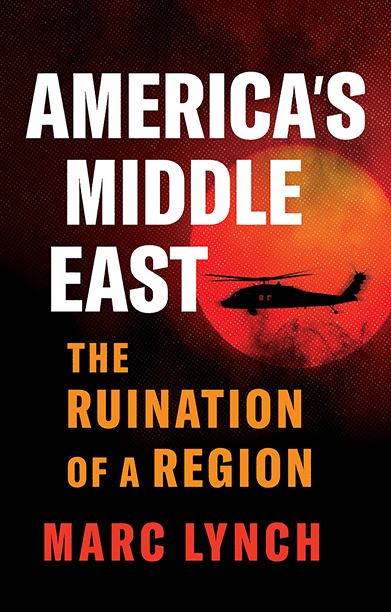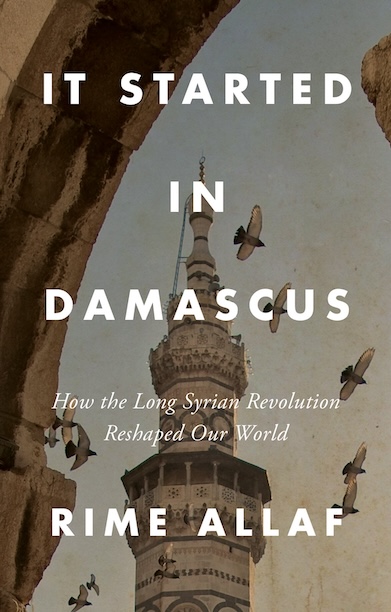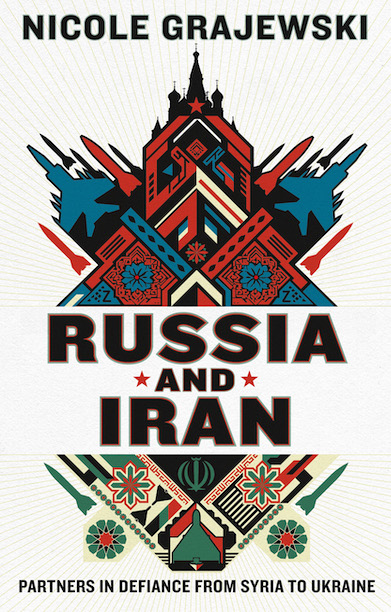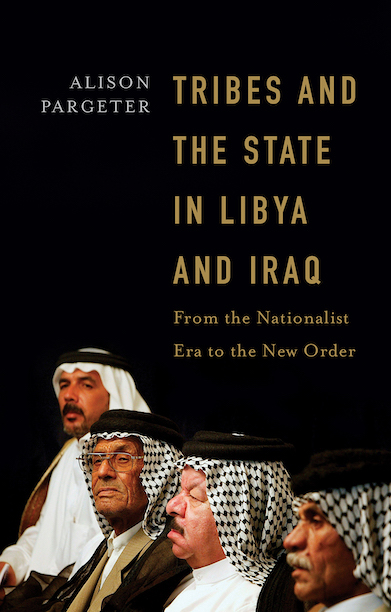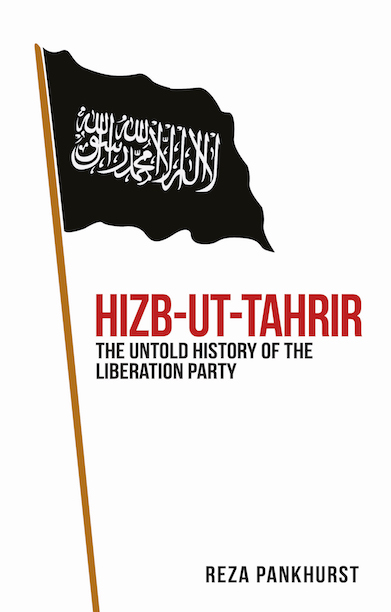From Deep State to Islamic State
The Arab Counter-Revolution and its Jihadi Legacy
Part of the CERI/Sciences Po. series‘An authoritative and revealing tour of the role of “Arab security mafias” in shaping the politics of the Middle East. Filiu’s account of the failure of the Arab uprisings places the blame for the region’s chaos where it belongs: with the reconstituted deep states, security agencies and autocratic leaders determined to hold on to power at any cost.’ — Marc Lynch, Director of the Institute for Middle East Studies at George Washington University
Description
In his disturbing and timely political history of the ‘Deep State’ in the Middle East, Jean-Pierre Filiu reveals how the autocracies of Syria, Egypt, and Yemen crushed the democratic uprisings of the ‘Arab Revolution’. They did so by turning to the shadowy intelligence agencies and internal security arms of the so-called ‘Deep State’ — emulating strategies pioneered in Kemalist Turkey — who had decades of experience in dealing with internal dissent, as well as to street gangs (the Baltaguiyya in Egypt) or death squads (the Shabbiha in Syria) to enforce their will.
Alongside intimidation, imprisonment and murder, the Arab counter-revolutionaries released from prison and secretly armed and funded many hardline Islamists, thereby boosting Salafi–Jihadi groups such as Islamic State, in the hope of convincing the Western powers to back their dictatorships. They also succeeded in dividing the opposition forces ranged against them, going so far as to ruthlessly discard politicians and generals from among their own elite in the pursuit of absolute, unfettered, power.
The impact of the Arab counter-revolution surprised most observers, who thought they had seen it all from the despots and security mafias of the Middle East: their perversity, their brutality, their voracity. But the wider world underestimated their ferocious readiness to literally burn down their countries in order to cling to absolute power. Bashar al-Assad clambered to the top of this murderous class of tyrants, driving nearly half of the Syrian population into exile and executing tens of thousands of his opponents. He has set a grisly precedent, one that other Arab autocrats may yet resort to.
Table of contents
1. Meet the Deep State
2. The Mythical Fathers of the Nation
3. The Modern Mamluks
4. The Algerian Matrix
5. An Income-Fuelled Violence
6. The ‘Global Terror’ Next Door
7. The Story of Two Squares in Egypt
8. Evil Twins in Yemen and Syria
9. Strangling Palestine
10. The Tunisian Alternative
Reviews
‘It takes patience, clarity and perspective to explain the whole grim picture [in the Middle East] and the links between its constituent parts. These qualities are on impressive display in an important new book by the French scholar Jean-Pierre Filiu. His particular skill is to describe the development, survival and resurgence of the Arab “deep state,” the security agencies that have kept it going and the “monster they helped create” – in its most extreme form the jihadis of the Islamic state (Isis).’ — The Guardian
‘Among authors trying to make sense of why the uprisings of 2011 largely failed, Jean-Pierre Filiu stands out. His new book … combines passion, scholarship, and insight to present a convincing explanation of the deep malaise afflicting the Arab world.’ — The Economist
‘Filiu’s book should make us think harder about the economics of power . . . as a diagnosis his book is written with scholarship, passion, and clarity.’ – New York Review of Books
‘Filiu has produced a refreshingly nuanced analysis of the region’s totalitarian regimes, distinguishing between those of his “Modern Mamluks” (in Syria, Egypt, Yemen and Algeria) and other styles of suppressive dictatorships (in Iraq, Libya, Tunisia and the Gulf States).’ — The Times Literary Supplement
‘In [this] polemical book … Filiu offers the radical view that the ‘Mamluks’ were crude usurpers of the original national revolution, which they hijacked at independence; he insists that this was the case in Algeria before broadening the charge to apply it to Egypt, Syria and Yemen.’ — London Review of Books
‘An authoritative and revealing tour of the role of “Arab security mafias” in shaping the politics of the Middle East. Filiu’s account of the failure of the Arab uprisings places the blame for the region’s chaos where it belongs: with the reconstituted deep states, security agencies and autocratic leaders determined to hold on to power at any cost.’ — Marc Lynch, Director of the Institute for Middle East Studies at George Washington University
‘Filiu’s thought-provoking book displays a genius for making sense out of the Middle East’s chaos and illuminating key destructive forces. At Year Five of the uncertain Arab Revolution Filiu shows how determined military-based secular regimes sacrificed democratic promise and confronted jihadists in regional violence rarely seen since the Arab Conquest.’ — Jon Randal, former foreign correspondent for the New York Times and author of Osama: The Making of a Terrorist
‘[T]his highly topical and ambitious work … looks to chart how the Arab Revolutions … have been crushed by a combination of authoritarian regimes and jihadis. Filiu combines the Mamluk history with a broad look across the Middle East and North Africa with a focus on Algeria, Yemen, Egypt, Syria and Tunisia … The hijacking of independence movements is a rip-roaring tale of purges, coups, exiles, state of emergencies and the ubiquitous “Communique Number Ones”.’ — Huffington Post
‘This is an invaluable contribution to the murky world of the Arab security regimes. As such external policymakers would be well advised to digest Filiu’s prescient warnings.’ — Middle East Eye
‘Filiu’s book breaks from the pack of works on the Arab Spring. Rather than focus on the grassroots opposition that emerged in 2011 to challenge the Arab authoritarian order, he casts attention on the state regimes with an eye to discerning the sources of their strength and resiliency. In so doing, he takes a long view to argue that State power, often disguised and hidden away, doomed the Arab Spring from the outset. … Excellent.’ –– John Calvert, Associate Professor of History, Creighton University, and author of Sayyid Qutb and the Origins of Radical Islamism
‘Far and away the best and most up-to-date survey of the Arab Security State and its ability to master the various waves of popular uprisings it faced during the Arab Spring. Based on a set of challenging hypotheses as well as an unrivalled feel for Arab political behaviour it must become required reading.’ — Roger Owen, Emeritus Professor of Middle East History, Harvard University
‘With magisterial knowledge of the Middle East, this sweeping narrative convincingly links the two most tragic events of our time: the failure of the Arab revolts and the proliferation of Islamist militancy. The result is a fast-paced, sombre, and ultimately devastating account.’ — Hazem Kandil, University of Cambridge, author of Inside the Brotherhood
‘Filiu has attempted to connect the past to the present in this highly topical and ambitious work that looks to chart how the Arab revolutions…have been crushed by a combination of authoritarian regimes and jihadis.’ —International Affairs
‘Misunderstanding the rise of the [Arab] state security mafias could have significant consequences. Jean-Pierre Filiu has admirably attempted to correct [Western misinterpretations]. … The text also provides a new interpretation of the Arab Spring in 2011, arguing that demonstrators took to the streets seeking revolution but were met with a sustained and bloody counterrevolution. … [T]his book is essential reading.’ — The Strategy Bridge
Author(s)

Jean-Pierre Filiu is Professor of Middle East Studies at Sciences Po in Paris, and has held visiting professorships at Columbia University and Georgetown University. He is the author of Gaza: A History; From Deep State to Islamic State and The Arab Revolution, all published by Hurst, and The Middle East: A Political History.
